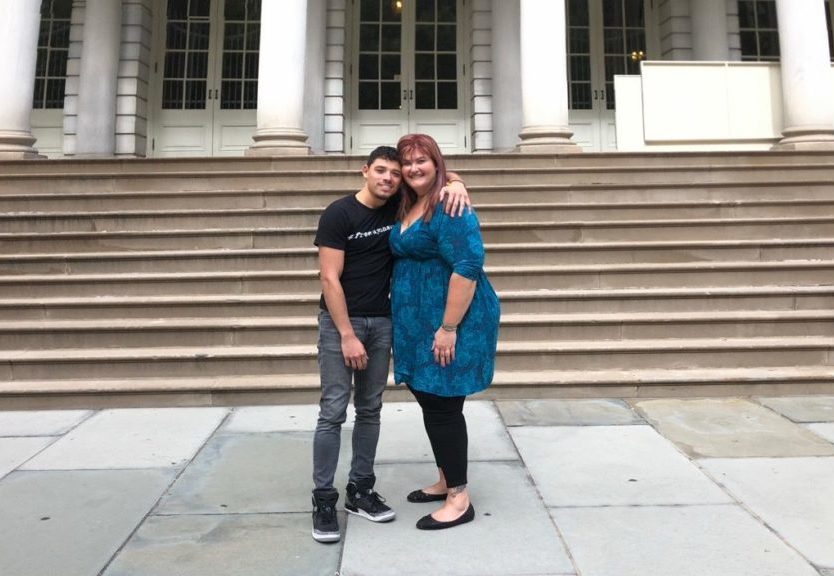Hamilton’s Anthony Ramos, Bensonhurst grad, testifies against high-stakes testing
"If it hadn't been for being seen beyond the grades, I wouldn't be here today."

Actor Anthony Ramos with friend and former teacher Sara Steinweiss. Photo courtesy of Sara Steinweiss
During an emotional, five-hour City Council hearing on high-stakes testing, education advocates spoke out against the notion of “teaching to the test” and called on the city to help rebalance the scales of a school system that labels students like actor Anthony Ramos as underperforming.
Ramos — the 27-year-old New Utrecht High School graduate who went on to act in Broadway’s Hamilton and star alongside A-listers in the 2018 remake of “A Star is Born” — told the room Tuesday that he barely made it out of high school after failing many of his Regents exams.
“I was not a good test-taker,” he said. “I almost didn’t graduate because I failed my earth science Regents three times. Thank God we found another way.”
